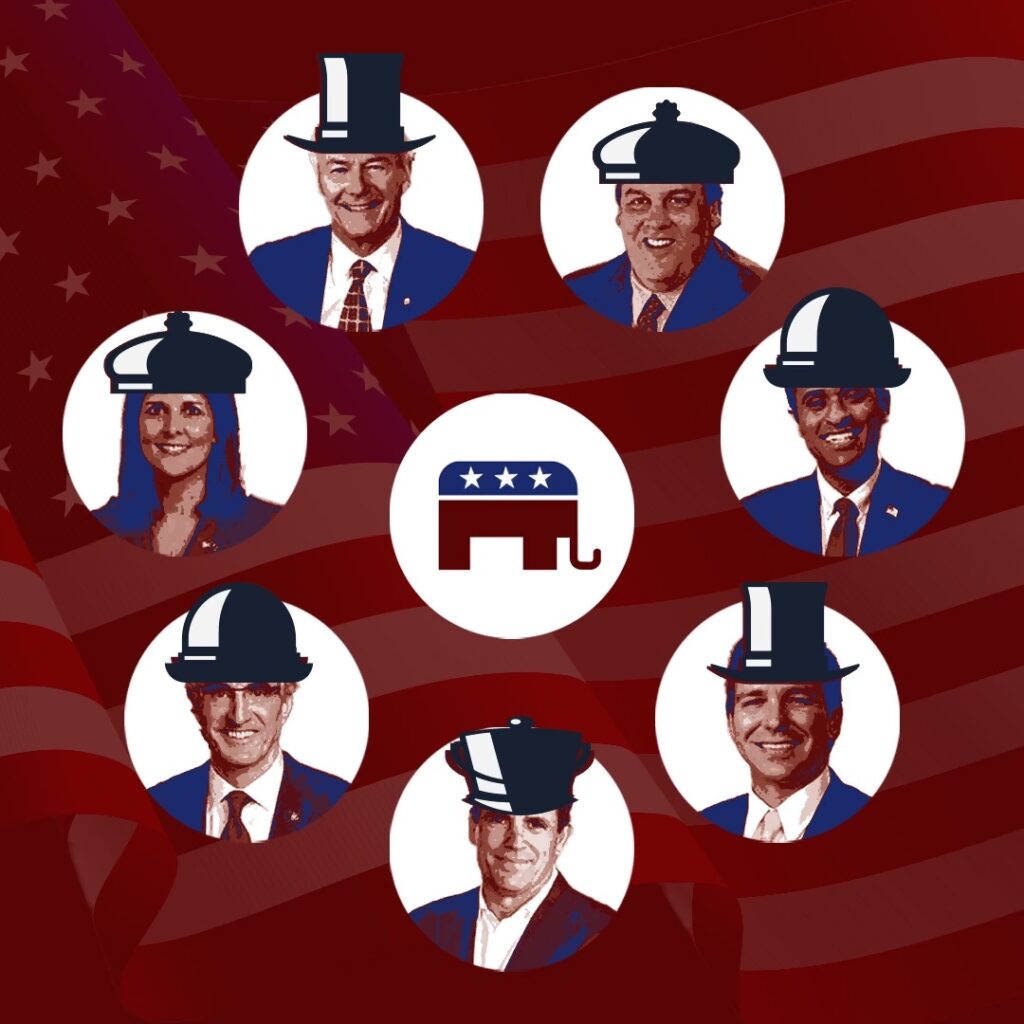Every four years, the central organizations behind the United States’ political parties nominate one candidate to appear on the presidential ballot. Each party only gets one nominee, so what happens to all the presidential-hopefuls who don’t get named at their respective National Conventions? Are they forced to just pause their careers until the next election rolls around?
Not exactly.
If most people were asked what jobs were up for grabs in the 2024 Election, they would say only the presidency. Others might name the presidency, a third of the seats in the Senate and all of the seats in the House of Representatives. Certainly, all of these answers are correct but they omit the assortment of available White House jobs the presidential runner-ups are eligible for if they fail to get their Party’s nomination.

In each new administration, the President has the authority to nominate individuals to a number of positions. In recent elections, presidential candidates have named their vice presidents, who become second-in-line to the presidency and prospective frontrunners for the next time the party choses a presidential nominee. Once he or she takes office, the president nominates members of the cabinet, who are the leaders of the most important agencies and divisions of the government. The president also names ambassadors to the United Nations and individual countries, which are key diplomatic posts representing the country abroad.
While the President-elect is at liberty to nominate anyone they deem qualified and they think can reasonably earn Senate approval, he or she typically chooses some former primary opponents.
Within the Biden administration, one needs to look no further than Vice President Kamala Harris for an example of this. Harris ran her own presidential campaign until dropping out from the race the December before the election. Likewise, Pete Buttigieg, who now serves as the Secretary of Transportation, was also a presidential hopeful in the 2020.
Give or take a few favorites in the Republican party who may or may not actually be running for office, there are currently eight candidates vying for the Republican Party’s nomination. They and the six candidates who already dropped out of the race will be some of the first names considered for those appointments if they don’t win the presidential nomination itself.
The outcome of the Presidential election determines the makeup of the Executive Branch for the next four years. While it’s still soon to make completely accurate predictions about how a Republican executive branch might shape up, there are some cues to look for that might indicate what positions a candidate may be interested in if they are unable to secure the nomination.
As it stands, former president Donald Trump holds a substantial lead in the polls over the other Republican candidates. Knowing this, some have gone as far as to label the ongoing Republican debates as “an audition for the Cabinet.” Even if candidates cannot convince their party they deserve the nomination, they can at the very least convince the people standing on stage alongside them that they can add value to the executive branch.
Even with Trump, this wouldn’t be unprecedented. In his first term, he appointed previous opponents Ben Carson and Rick Perry to his cabinet. Though current candidate Nikki Haley was only a rumored candidate for Vice President in 2016, after the position formally went to Mike Pence, she was appointed by Trump to be the ambassador to the United Nations.
Although getting tapped to be someone’s running mate would require an earlier drop-out date, staying in the race for as long as possible can be beneficial for candidates even if their odds of winning seem near impossible. If campaign funds allow, continuing a campaign allows a candidate to gain national recognition which can be useful for future attempts at running for office whether it be the presidency or a different seat. And, as previously established, it can also help them secure their next job.
As the Republican primaries progress, the discerning political eye will take note of all candidates, not just those leading the polls. Even in the face of unfavorable odds, candidates always have a reason for running. If a candidate can use their time running to campaign with other candidates and their party, then losing the nomination can often mean winning something else.



